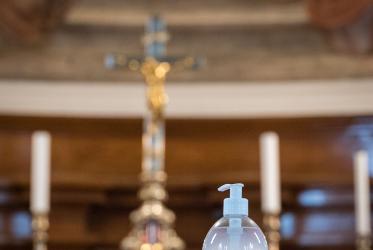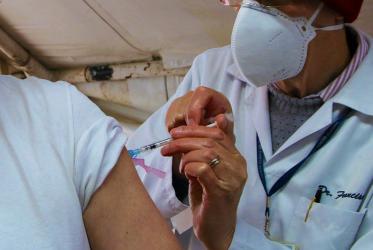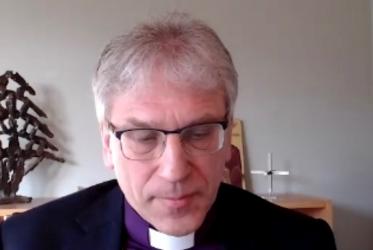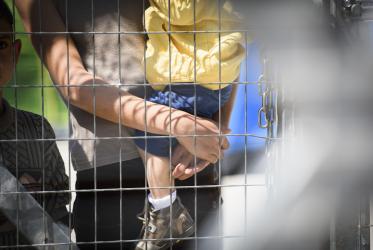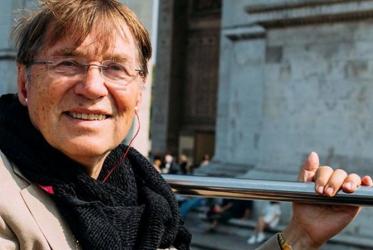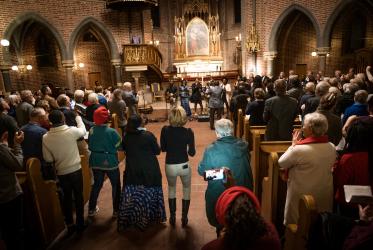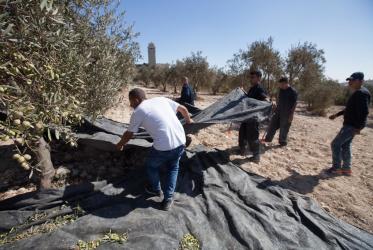Displaying 1 - 20 of 48
A visionary missionary heads home
25 March 2020
Nordic churches: “take our human responsibility”
12 March 2020
Norwegian prophetic bishop ‘has no regrets’
20 December 2019
Retired Norway bishop risks jail over principles
05 December 2019
Oslo prays for peace, in week of Peace Prize ceremony
10 December 2018
WCC moderator speaks at Justice Conference in Norway
09 November 2018
Bishop Helga - diaconal apostle
22 December 2017
Peacemaking “a great and compelling life task”
09 December 2017
Holy Land tourism goes beyond traditional paths
05 October 2017
‘Love is stronger than hate’
02 May 2017


